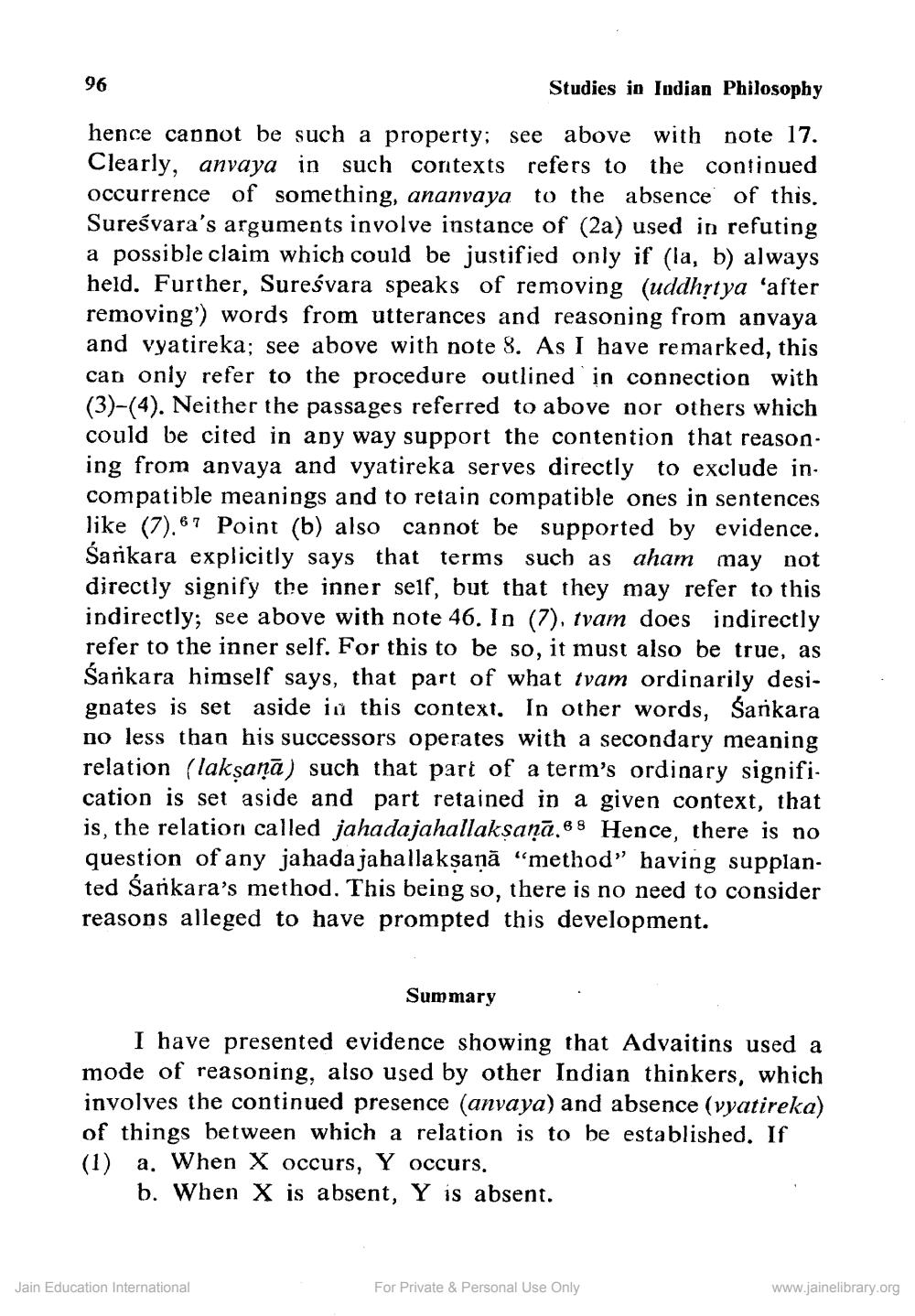________________
96
Studies in Indian Philosophy
hence cannot be such a property; see above with note 17. Clearly, anvaya in such contexts refers to the continued occurrence of something, ananvaya to the absence of this. Sureśvara's arguments involve instance of (2a) used in refuting a possible claim which could be justified only if (la, b) always held. Further, Sureśvara speaks of removing (uddhịtya 'after removing') words from utterances and reasoning from anvaya and vyatireka; see above with note 8. As I have remarked, this can only refer to the procedure outlined in connection with (3)-(4). Neither the passages referred to above nor others which could be cited in any way support the contention that reason ing from anvaya and vyatireka serves directly to exclude in. compatible meanings and to retain compatible ones in sentences like (7).67 Point (b) also cannot be supported by evidence. Śarikara explicitly says that terms such as aham may not directly signify the inner self, but that they may refer to this indirectly; see above with note 46. In (7), tvam does indirectly refer to the inner self. For this to be so, it must also be true, as Śarikara himself says, that part of what tvam ordinarily designates is set aside iú this context. In other words, Sarkara no less than his successors operates with a secondary meaning relation (laksanā) such that part of a term's ordinary signification is set aside and part retained in a given context, that is, the relation called jahadajahallaksaņā.68 Hence, there is no question of any jahada jahallaksaņā “method” having supplanted Śarikara's method. This being so, there is no need to consider reasons alleged to have prompted this development.
Summary
I have presented evidence showing that Advaitins used a mode of reasoning, also used by other Indian thinkers, which involves the continued presence (anvaya) and absence (vyatireka) of things between which a relation is to be established. If (1) a. When X occurs, Y occurs.
b. When X is absent, Y is absent.
Jain Education International
For Private & Personal Use Only
www.jainelibrary.org




